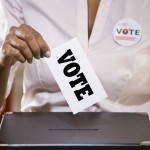 Concern about the influence of online echo chambers have been considerable in recent years, as politics on both sides of the Atlantic become more polarized. A new study from the MIT Sloan School of Management explores how these partisan bubbles affect our voting habits.
Concern about the influence of online echo chambers have been considerable in recent years, as politics on both sides of the Atlantic become more polarized. A new study from the MIT Sloan School of Management explores how these partisan bubbles affect our voting habits.
The research saw participants placed inside a simulated election, and it emerged that social media and other communication networks can significantly distort our perceptions of how others are likely to vote, with this distortion having a knock-on effect on voting overall.
“The structure of information networks can really fundamentally influence the outcomes of elections,” the authors say. “It can make a big difference and is an issue people should be taking seriously.”
Tactical voting
The study saw a few thousand volunteers playing a ‘voter game’, with players split into either a yellow team or a purple team, with around 24 people in each team. They were given live polling data and were allowed to update their vote accordingly. Each was also incentivized to produce various vote outcomes that point towards a ‘compromise worldview’.
For instance, if teams received a super-majority vote share, they would receive a payoff, but it would be smaller if the other team earned a super-majority. Neither team would receive a payoff if neither team reached that threshold.
The data suggests that most people would vote for their own party when they thought it had a chance of winning, and usually when they thought a deadlock was the likely outcome. When the opposition was likely to achieve a super-majority however, things became more complex, with half of voters switching sides.
Information gerrymandering
To spice things up, the researchers manipulated the polling information people received. In some games, players received random, unbiased polling information, but in some the information was manipulated so that some participants were placed into an opponents echo chamber. In other games, bots were deployed to make up around 20% of the voters and behave like zealots within those teams.
As the simulations were played out repeatedly, it emerged that electoral outcomes could be heavily biased depending on the way polling information was distributed to those teams, but also by the action of zealots. For instance, when people believe that most other people were voting for the other party, they would often switch their own vote to fall into line.
“The network experiments are important, because they allow us to test the predictions of the mathematical models,” the researchers say. “When we added echo chambers, we saw that deadlock happened much more often — and, more importantly, we saw that information gerrymandering biased the election results in favor of one party over the other.”
The authors believe that their work will prompt further research among the academic community, especially in terms of testing the findings in an empirical context.
“Our hope is that laying out this information gerrymandering theory, and introducing this voter game, we will spur new research around these topics to understand how these effects play out in real-world networks,” they conclude.